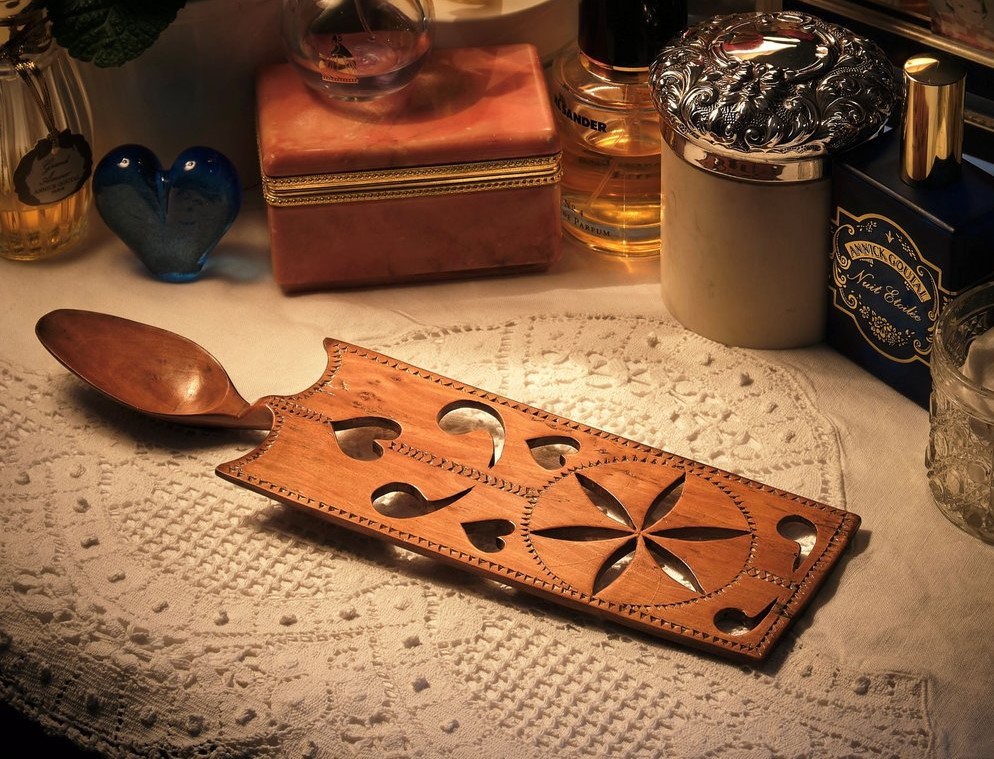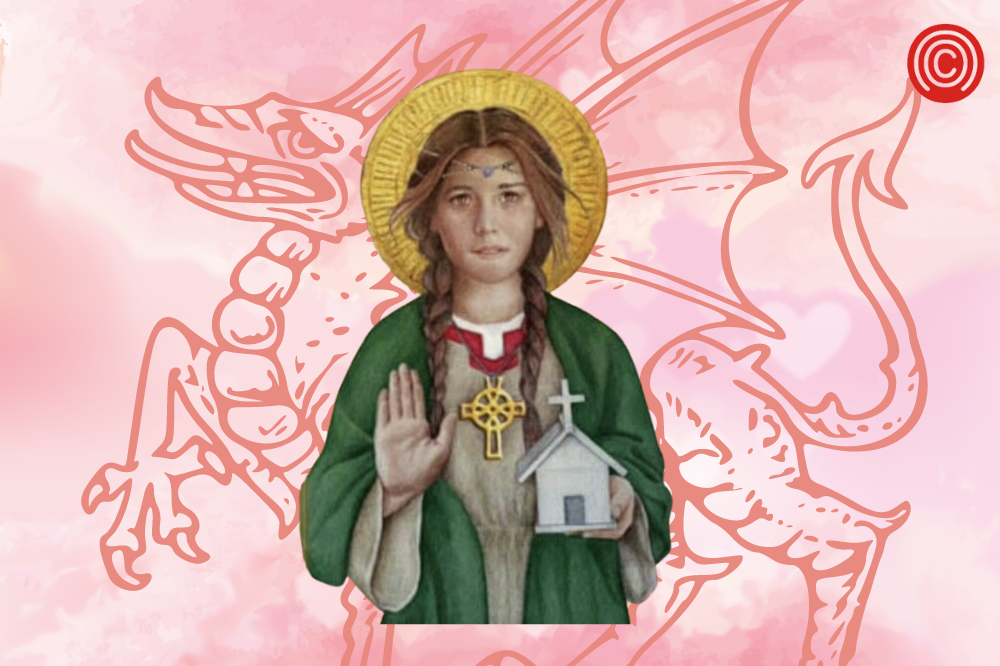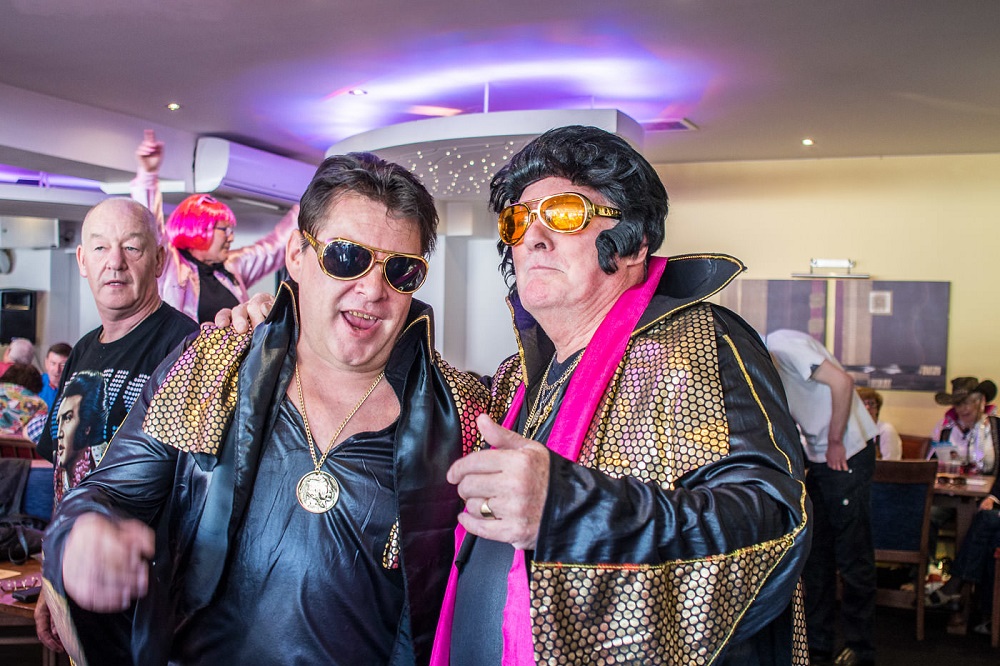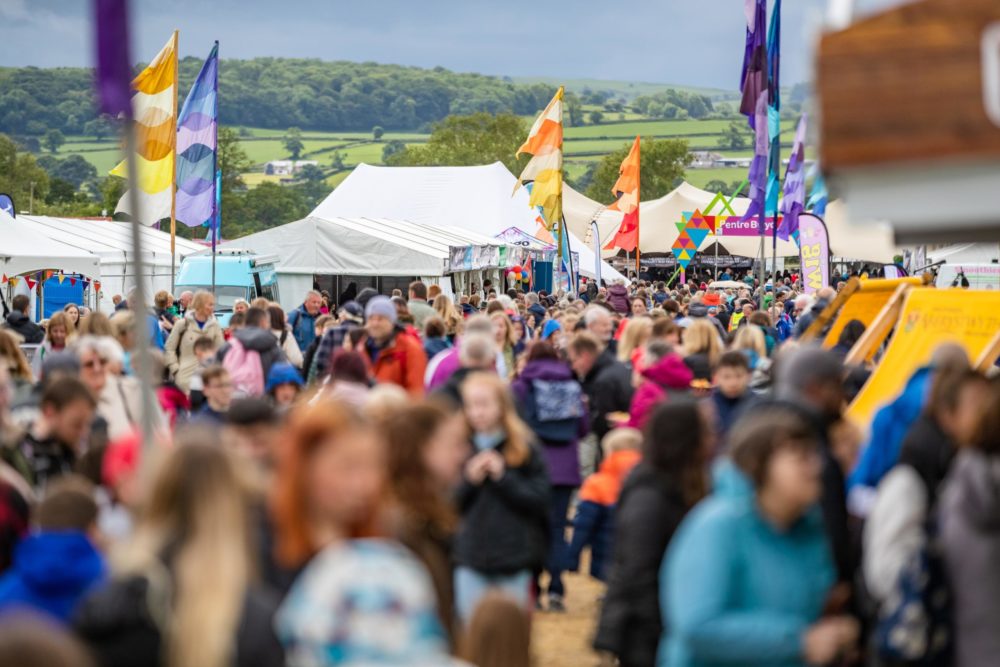Welsh traditions to be formally recognised as UK joins UNESCO Convention

Communities across Wales are being asked to nominate their most cherished traditions to be included in a UNESCO register to safeguard cultural heritage.
The callout comes as the UK Government confirms its intention to ratify the 2003 UNESCO Convention for Safeguarding of the Intangible Cultural Heritage, which seeks to protect the crafts, practices, and traditions which are recognised as being a key part of national life, providing a sense of identity to communities.
Festive favourites, such as the Nos Galan road races, 3am carol singing and the Mari Lwyd could all be formally recognised.
Central to Welsh culture
Seasonal celebrations taking place at St David’s Day, the Royal Welsh Show, St Dwynwen’s Day and the tradition of holding Eisteddfodau, where all cultural activities including singing and spoken word are conducted in the Welsh language, could also be included.
Traditions that are central to Welsh culture, identity and communities, from the Urdd, to the playing of the Welsh harp and the spoken word art of Cerdd Dafod are also expected to be put forward for a UK-wide official inventory.

Modern day events like bog-snorkelling in Llanwrtyd Wells and the famous Elvis Festival in Porthcawl could be registered alongside more long-standing activities such as singing in male voice choirs.
Artisanal crafts such as slate-carving, making lovespoons and the art of making traditional Welsh cakes with a bakestone, together with the practitioners of these traditions, will also be considered.
The selected Welsh traditions will sit alongside valued traditions from across the rest of the UK, from bagpipe-playing and Highland dancing to cheese-rolling and the art of basket weaving.

These practices are often also referred to as ‘intangible cultural heritage’ or ‘living heritage’ and are inherited from our ancestors and passed on to our descendants.
Arts and Heritage Minister Lord Parkinson of Whitley Bay said: “The UK is rich in traditions which have been passed down from generation to generation – with the music and culture of Wales adding significantly to that richness.
“These crafts, customs, and celebrations have helped to shape our communities and bring people together, who continue to shape them in turn.
“By ratifying this Convention, we will be able to celebrate treasured traditions from every corner of the country, support the people who practise them, and ensure that they are passed down for future generations to enjoy.”

Welsh Secretary David TC Davies said: “We have a huge number of wonderful traditions and customs in Wales that help make our nation unique and distinct and it’s great that many of these will now be formally recorded and recognised.
“It’s important to preserve and protect living heritage, as well as physical landmarks and heritage sites, to pass onto future generations and maintain our special Welsh culture.”
Community recognition
By ratifying the Convention, the UK Government will be able to recognise our most important crafts and traditions in the same way as we have considered our physical heritage sites such as the Slate Landscape of Northwest Wales, the Castles and Town Walls of King Edward I, the Pontcysyllte Aqueduct and Canal, and the Blaenavon Industrial Landscape.
As intangible cultural heritage can only be considered as such when it is recognised by the communities, groups or individuals that create, maintain and share it, it will be these groups and people from across Wales who will be able to nominate their favourite traditions to be formally recognised.
Public consultation launched
A public consultation launched today will seek the public’s views on the UK Government’s proposed approach to implementing the Convention across the UK to safeguard valued traditions.
This will include the approach to how people will be able to nominate traditions, how they will be adjudicated, and any criteria that the nominated practices will need to meet before they are considered.
The UK Government has been working closely with the Devolved Administrations, the Crown Dependencies and Overseas Territories in the run up to this decision and will continue to do so in order to implement the Convention and collate the UK-wide inventory, which is expected to launch for nominations next year.
Support our Nation today
For the price of a cup of coffee a month you can help us create an independent, not-for-profit, national news service for the people of Wales, by the people of Wales.






Opening a window to set the soul of the departed free…
I hope the English list their hypocrisy and duplicity as intangible cultural assets.
British! Or Cymric! The term Welsh was an English invention so they could call themselves British at our expense. British comes from Briton, which is the latin take on Prydain. The ancient and native name of OUR Island.
Exactly. Cultural appropriation of the highest order – to justify their usurpery.
Yeah, and the amount of people who don’t realise it, or even care is the very reason why Wales is in the state it is. The more people who know who we, as a people truly are, the better.
The Angles, Saxons and Jutes added surprisingly little to Britain’s gene pool. The English are very much descended from the Romano-British as much as we. The differences between us are cultural. Cymreictod is a culture and a way of life. You don’t have to have the “right blood” to be a Cymro.
Goidel is not so great either, means “the thieves”. Hope we all rub along better in 2024.
From a government that told the Greek PM to get lost with regards what the UK stole.
Never take this governments proclamations at face value when they say they are doing something for us.
To show that they are serious, the first thing the UK Gov should do, is, issue an apology to the Celtic nations, for the hundreds of years spent trying to destroy their cultures and languages, and then, return all stolen artifacts, books, manuscripts etc to said countries. Then we can begin take them seriously, and maybe join in with this scheme.
“Ac yn yr amgueddfa gyda’r cloc / Fydd y Gymraeg a’i gogoniannau, toc.”